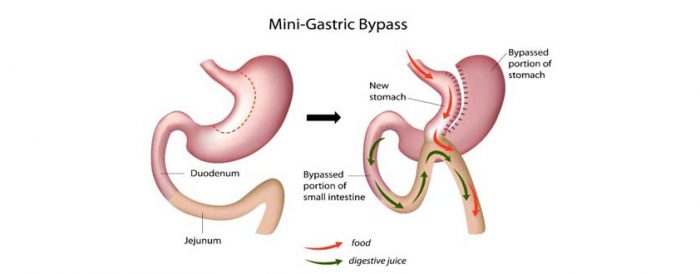Mini-gastric bypass, or single anastomosis gastric bypass, is an effective and well-established procedure which combines some of the properties of a gastric sleeve and a standard gastric bypass. The upper part of the stomach is divided into a tube and then joined to a loop of intestine.
The mini-gastric bypass can be used as a primary weight loss procedure. It can also be used in patients who have had previous gastric banding or sleeve surgery but have been unsuccessful with weight loss, or who have had band-related complications and have decided on revision surgery.

Dr. Arun Bhardwaj is one of the best bariatric surgeons in Delhi performing Laparoscopic Mini Gastric Bypass routinely with his multidisciplinary team caring for patients. As a result, complication rates are negligible, and weight loss rates are high
For More about Laparoscopic Mini Gastric Bypass, you can reach directly to
Dr. Arun Bhardwaj at +91-8506856072, 9716972820
Dr. Arun Bhardwaj at +91-8506856072, 9716972820